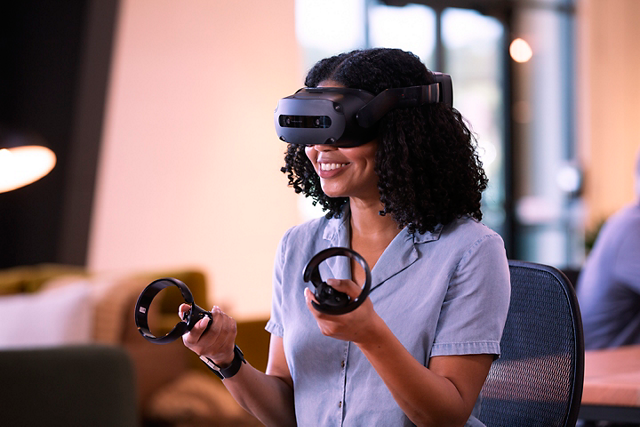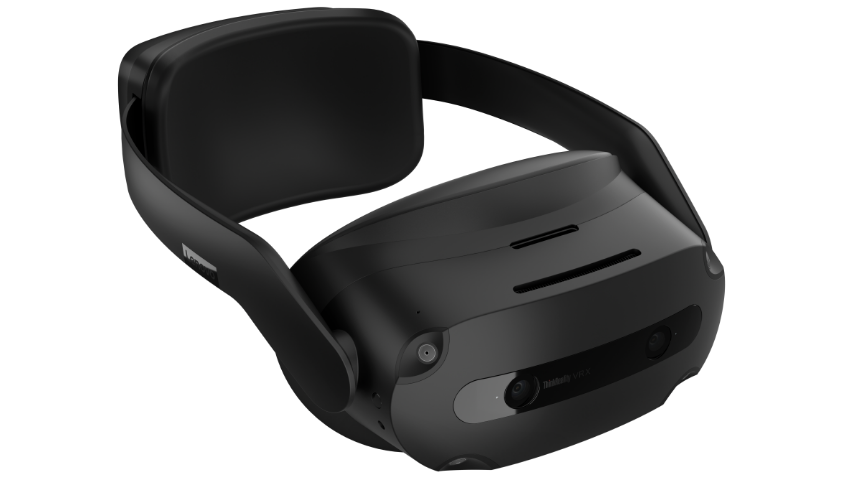
Lenovo has detailed the ThinkReality VRX, an all-in-one VR headset with high-resolution pass-through capabilities for mixed reality (MR) applications. Lenovo developed this headset in collaboration with Qualcomm for the enterprise market.
The ThinkReality VRX has six degrees of freedom (6DoF), is powered by the Snapdragon XR2+ Gen 1 platform, the same chip that powers the Meta Quest Pro, and provides full-color, high-resolution pass-through capabilities for MR applications from two front-facing cameras acting as the wearer’s computer vision.
This is the world’s first VR headset to support Snapdragon Spaces technology, which allows enterprise developers to expand the ecosystem and rethink reality.
According to Lenovo, full colour pass-through enables users to work continuously while wearing the headset and easily switch between immersive use cases such as 3D content consumption and collaboration and interacting with the real world to do everyday tasks such as talking to a coworker next to you, working on a PC, or even simply getting a drink of water.

ThinkReality VRX Key Specifications
| Processor | Snapdragon XR2+ Gen 1 |
| Operating System | Android 12 |
| RAM | 12 GB |
| Storage | 128 GB |
| Optics | Pancake lenses |
| Resolution | 2280 X 2280 per eye |
| Field Of Vision | 95° |
| Refresh Rate | 70/90Hz |
| Pass-through | Stereo full color HD passthrough cameras |
| Tracking | 4-camera 6DoF optical tracking |
| Audio | Integrated speakers, dual microphone, 3.5mm jack |
| Controller type | 6DoF controllers, hand tracking, headset buttons |
| Battery | 6900 mAh USB-C charging, rear placement |
| PC | Streaming Wi-Fi/USB-C streaming |
| Materials | Fully wipeable surfaces |
Pricing and availability
The Lenovo ThinkReality VRX headset will be available worldwide starting in 2023 and the price will be disclosed upon availability.
Regarding the ThinkReality VRX headset, Vishal Shah, Head of Commercial Virtual Reality, Lenovo Intelligent Devices Group said,
While we are confident MR is the future of enterprise XR, we are just as sure AR and VR headsets will remain much needed for a long time to come. Most AR use cases in a work environment require transparent lenses for situational awareness in potentially hazardous environments like a factory floor or construction site.
At the same time, high-resolution passthrough is an additional expense not every VR user will opt for, for example in educational settings and other primarily content-consuming scenarios.
The promise and potential for the Metaverse is years away from being realized, nevertheless enterprises deploying XR solutions today are seeing real ROI from increased productivity. Lenovo ThinkReality will stay focused on building better onramps to the Enterprise Metaverse, so customers have everything they need to scale into the new realities of business.
